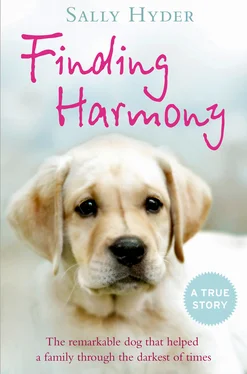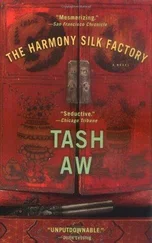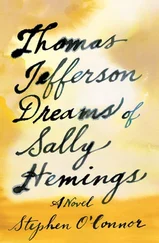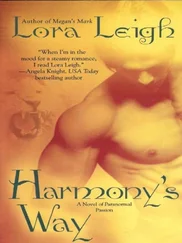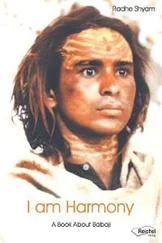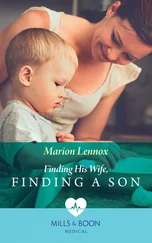On Saturdays, my father worked an extra job selling carpets and would come home with sweets, stories of difficult customers and newly hatched sales pitches. Meanwhile, I spent many a happy afternoon in the local farmers’ fields ‘tatty scouring’. All the kids did it: clearing the fields after the tractor had pulled up the potatoes, proudly bringing home bags of spuds for our mums. Sundays, however, were reserved for walking. After breakfast, Mum, Dad and I would set off, with Dad in socks and boots, whatever the weather. ‘No good comes of baring your feet,’ he used to say, me in my Dunlop Green Flash. I have photos of us in hand-crocheted multi-coloured waistcoats and memories of trudging up hills in orange bell-bottoms, with embroidered flowers swinging round my ankles. Real seventies’ flair! Days were filled with the sound of our breath, the crunch of footsteps, rucksacks loaded with Marmite and cottage cheese sandwiches plus flasks of sweet tea. Although I didn’t think about it at the time (I wished then that I had parents who didn’t march up and down hills), it was there that I discovered my love of silence and being alone with your thoughts – it’s all part of the joy and discipline of climbing.
We walked up to the Old Man of Storr on the Isle of Skye and ate our lunch watching the clouds come in. It was snowing on the way down. When I was 16, we walked the Cuillin ridge from Sligachan, up and over to Loch Coruisk. Increasingly reluctantly, I followed Dad to the top. I stopped early, but he came back for me.
‘Come on, Sally. It’s not far to the top. Believe me, it’s worth it!’ he insisted.
As we reached the lip and looked out, it was then that I understood how you earn a view. The challenge of the climb is rewarded by the achievement of reaching the summit, then seeing the landscape open out before you.
Just before Christmas 1986, Andrew surprised me with the news that we were going hiking, abroad.
‘Morocco,’ he announced, after perusing the travel section of the local bookstore over the course of a few weeks. ‘Walking in the Anti Atlas Mountains. What do you think?’
I couldn’t wait.
Feeling that it would be safer to travel to North Africa in a group rather than doing it alone, we booked our trip through an organised group called Explore Worldwide. The next gruelling six months saw me sitting my Final nursing exams and working in the oncology unit again. That December we flew into Marrakech with a bunch of 10 Brits. My first taste of the exotic, it was love at first sight. Entranced, Andrew and I wandered through the souks , a maze of alleyways where you could buy red clay for staining lips, henna and believe it or not, second-hand false teeth! We bartered for a sheepskin and watched pet monkeys swing from men’s shoulders. At night the main square came alive with fire-eaters and snake charmers, tarot-readers and storytellers. We ate spicy butterbean stew from wooden bowls and absorbed the Arabic voices and foreign smells. I made a point of looking at the women (whose faces were hidden in burkas) in the eye. If I smiled and nodded, so did they. Otherwise they formed a silent counterpart to their men.
On Christmas Eve we took the bus through the Tiz ’n’ Test Pass, leaving the mountains behind in a cloud of orange dust. Christmas was spent in the blistering-hot desert town of Taroudant. The hotel’s palm tree had cotton wool stuck to its leaves and we drank beer from bottles decorated with pictures of Father Christmas. Our seven-course lunch on the day itself consisted of spam fritters, potatoes, salad, soup, burnt chicken, processed peas and cake, served separately and in that order, much to our amusement. The next day was spent walking in the mountains. Escape from the heat (we were on the border of the Sahara) into the cool mountain air was a welcome relief. In the distance we could make out an oasis of palms and orange groves; beyond was desert, stretching as far as the eye could see.
For a week, we roamed the mountains and all sorts of crazy adventures befell us. We stayed in lots of different villages, once in an old derelict house with no running water or electricity. We ate by candlelight and I was given a djellaba (a long, loose-fitting robe) that I wore as we listened to the splash of rain by an open fire while the men played homemade musical instruments, mostly drums but some whistle- and flute-like ones too. Of course no other women were present, but I loved sitting and communicating with the villagers, exchanging ideas about children and marriage through signs and gestures (no one spoke English). In the fishing village of Essaouira, Cat Stevens (remember him?) gave the Call to Prayer at 6.30am and we discovered the joy of eating barbecued sweetcorn and fresh sardines. When it was eventually time to go home, Andrew and I were both thinking the same thing: There is so much out there.
A door had opened and we could see what lay ahead: the big wide world.
* * *
The only problem with Scotland in 1987 was unemployment. Although I’d qualified there as a nurse, in the end I had to move down to London to find a job. It wasn’t too much of a sacrifice, though, as Andrew was by then studying Estate Management in Reading. On 14 February, I reported for duty on the general medical ward at Guy’s, a big teaching hospital not far from London Bridge. I moved into a single room on site. It was a hovel – hot and noisy, with the sounds of trains and the pub and all the other resident nurses in their rooms. The kitchen was disgusting, but Andrew bought me a slow cooker, perfect for stews and soups. It’s still in use today.
I hated the smell of London in the summer: the metallic tang on your tongue, dog poo on the pavements and vegetables rotting in the sun, the sludge of the Thames. Luckily, I didn’t have to wait long before I was moved to a shared flat, newly built and also on site. At my request I was transferred to the oncology unit, where I was responsible for caring for hundreds of patients in an L-shaped ward; men down one side and women down the other, bone-marrow transplants in the side rooms, chemotherapy everywhere. At weekends, Andrew would come up and we spent happy days together (when I was lucky enough to be off-duty) walking through the city, queuing for stand-by tickets at the Globe and going to West End musicals. We loved the musicals: our favourites then were Starlight Express and Les Misérables but we also enjoyed Cats and later on, The Phantom of the Opera (you might say we were suckers for anything Andrew Lloyd Webber cared to throw our way!). Memories of those productions have stayed with us. Andrew and Clara have also done the West End shows and being musical, sing the songs at the tops of their voices. It’s lovely to think we’ve managed to pass on our appreciation to the next generation.
For those brief, fun-packed months, London felt like our city.
Then I began to feel unwell.
The first acute symptom was a pain in my side. This was in the March, just after I’d arrived in the City and started work at Guy’s. At first, I’d felt lonely but now I also felt scared. The symptoms worsened: I needed pethi-dine to control the pain, breathing was difficult, my chest and abdomen began to ache and I was running a fever. Concerned, the doctors eventually diagnosed Bornholm Disease (named after the islands of Bornholm in Denmark) and caused by a coxsackie – group B common virus – that inflames the intercostal muscles. I was admitted to the hospital I worked in, a very strange experience indeed. Being new in town I knew hardly anyone but the staff that I worked with came to visit me and my new flatmates moved my stuff to the flat.
After a week I was discharged and went to recuperate at Uncle Andrew (my mother’s brother) and Aunty Pat’s home in St Neots, Cambridgeshire. They were extremely kind and pulled me through. I remember watching the Zeebrugge disaster on the television: a car ferry capsized just outside the Belgian port killing hundreds, which added to my sense of mortality. I focused on getting back to work and making a full recovery.
Читать дальше
